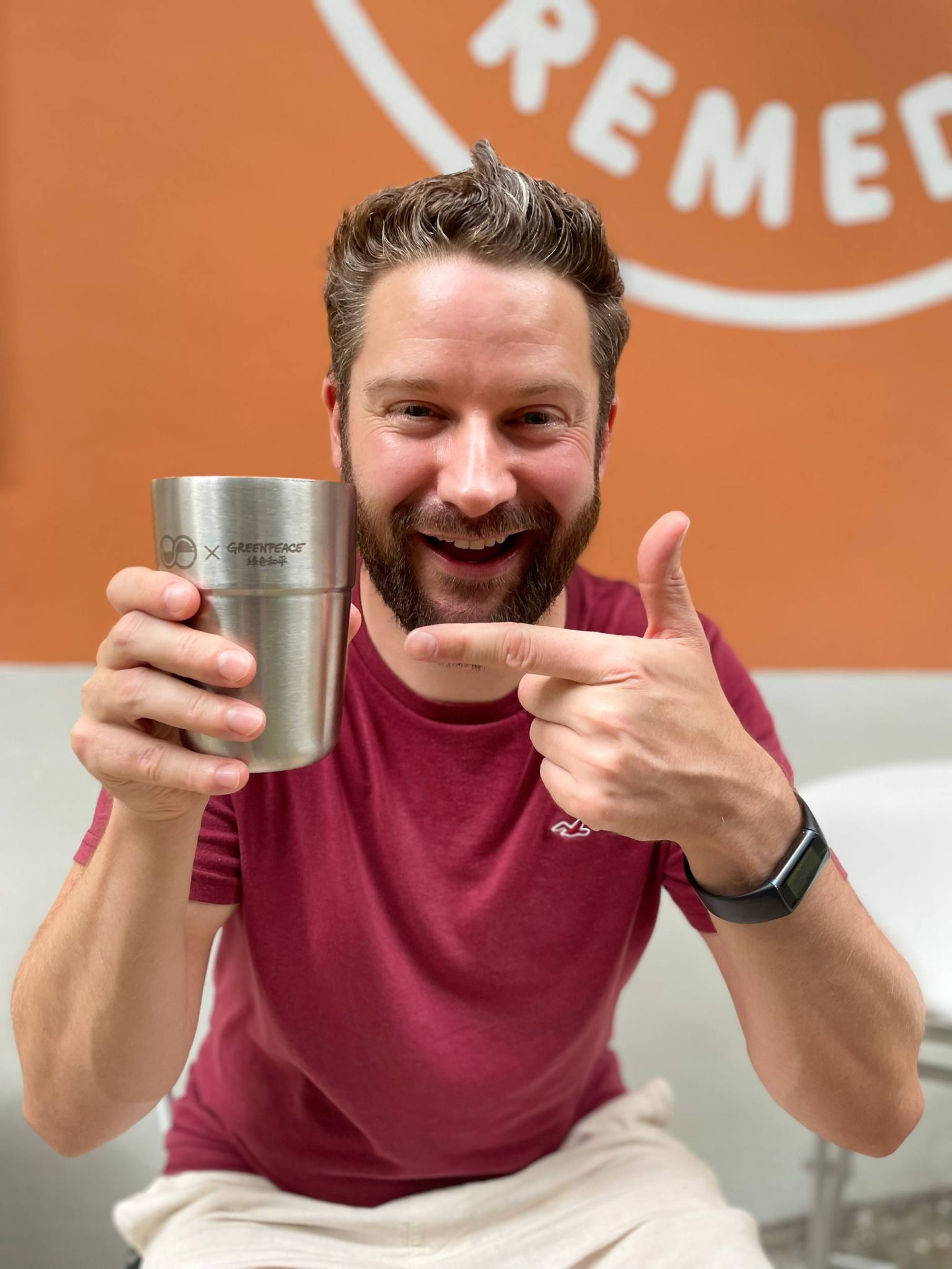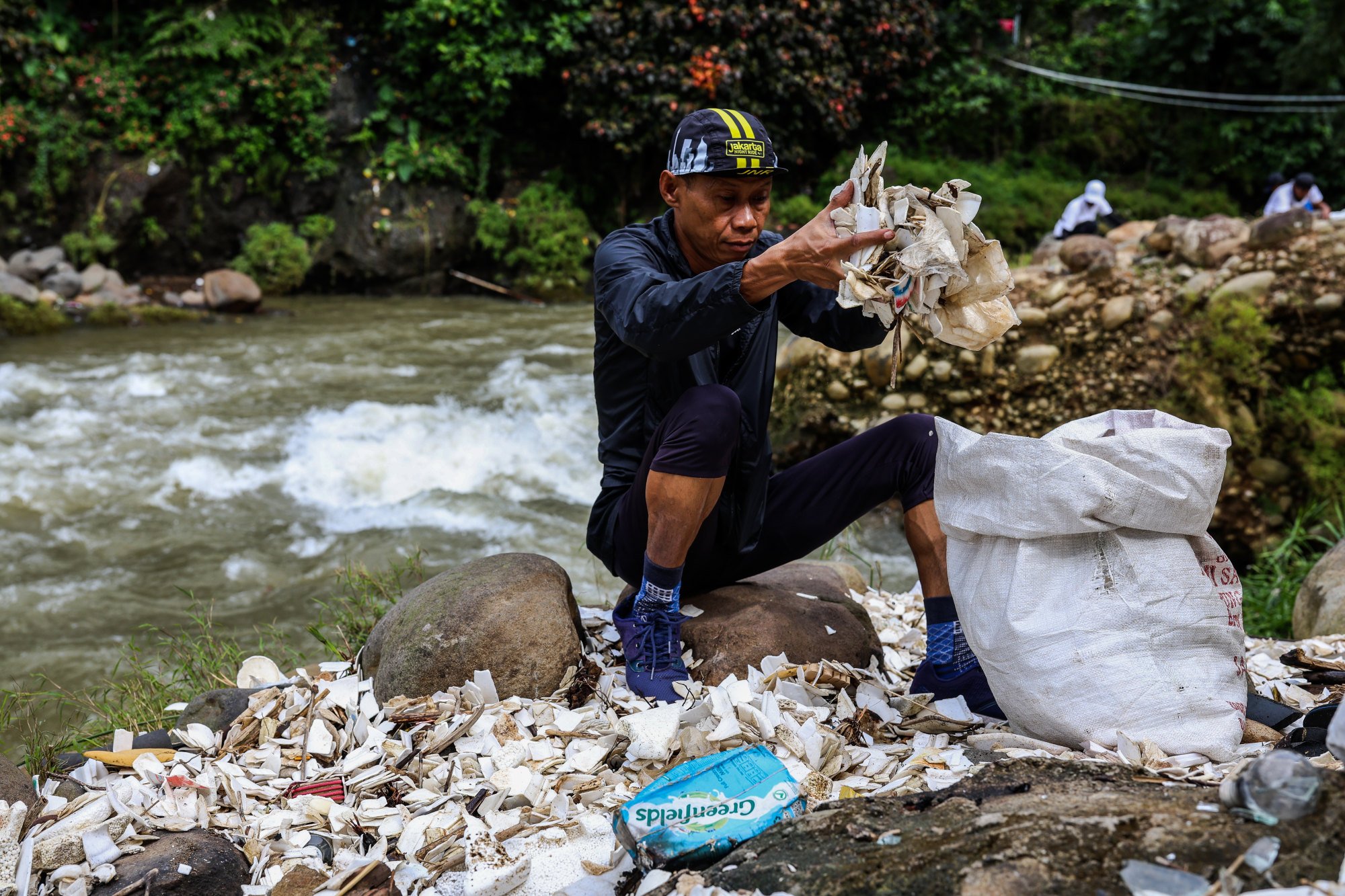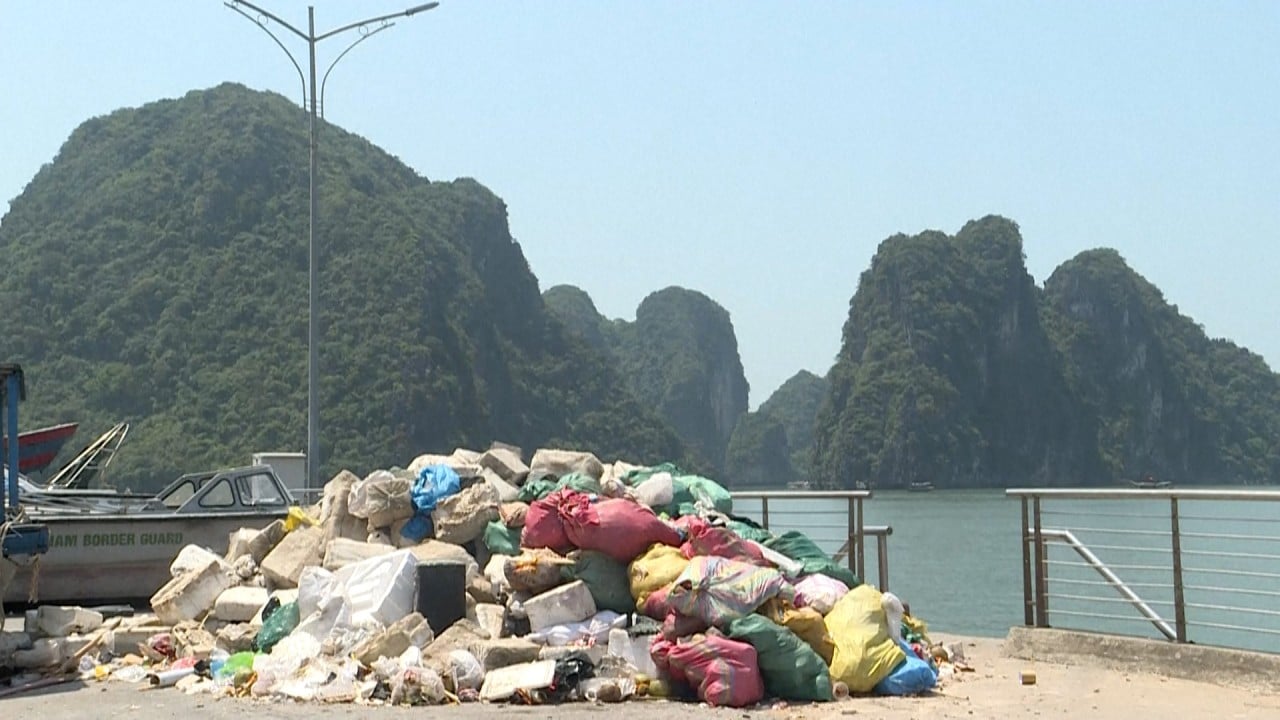
Talking trash: plastic waste treaty talks spur hope for Asia’s circular economy
- Asia accounts for a big portion of all plastic produced annually, with Hong Kong and South Korea among the highest per capita producers, and China topping the list
- Global negotiators are to begin crafting a draft treaty to curb the use of plastic, but environmentalists say we need to create a lot less of it in the first place
“My friend said, welcome to Hong Kong! Our waters are really polluted,” said Parker, vividly recalling the 2014 incident.
It left such a deep imprint that he would go on to create Circular City, a technology platform enabling cafes to lend steel coffee cups to customers who borrow them for free, and earn reward points when they are returned.
“When I was growing up I went to the beach and played with crabs and shells. When my two-year-old son grows up in Hong Kong, it really frustrates me that he plays with bits of plastic among the shells,” said Parker.

Since his firm’s launch in 2020 – with the help of HK$1 million (US$127,500) in grants from the Hong Kong government – 10,000 of his steel cups have been used, meaning that number of disposable cups were not added to the city’s landfill. Around a million are added daily.
Parker’s firm has started generating revenue and he has stopped teaching to focus on it. Now, with world leaders discussing a treaty on plastic waste, he is optimistic about scaling up.
Environmental advocates have cautiously welcomed the progress made in Paris, despite concerns from the petroleum industry and some governments, hopeful that industries will now clean up their supply chains to ensure sustainability.
Plastic waste is projected to almost triple by 2060, with around half ending up in landfills and less than one-fifth recycled, according to a 2022 Organisation for Economic Co-operation and Development report.
It is too early to predict the outcome as the move will choke off a stream of revenue for fossil fuel firms, analysts say, with most plastics made from chemicals that come from coal, gas or petrol.

But regardless of the shape of the pending draft treaty, they said that those businesses taking an early lead in reducing plastic waste are likely to be at a significant advantage.
The waste problem worsened during the pandemic due to so many purchases of single-use plastic like face masks and e-commerce packaging from items bought online, compounded by disruptions in recycling and waste management, industry executives say.

Global talks for a plastic waste treaty are encouraging, he said, but he expects an agreement to initially focus on broad agendas like reducing emissions. Immediate solutions to waste collection lie in the strengthening of the domestic regulatory framework and existing policies, Tsui said.
Collection from different households and the segregation of different packaging can be far tougher propositions than delivering the product from a factory, he added.
Innovation challenge
Environmentalists say that a solution to plastic waste should start with a goal to reduce production at the top of the chain, followed by the creation of longer-lasting items that can be disassembled and recycled as the last step.
According to global conservation body WWF, plastic straws can take up to 200 years to decompose, and when they disintegrate they release tiny but harmful particles called microplastics.
While the full impact of ingesting these is not yet known, there is already research that suggests they may be harmful to health, with studies showing that chemicals used in plastic production can disrupt hormones regulating growth and development.

British chemist Alexander Parkes patented what is considered the first manufactured plastic back in 1862, but widespread use of plastic items only really caught on in more recent decades with products ranging from plastic shopping bags and lunchboxes to artificial hip joints and spacesuits.
“We have to phase it [plastic] out,” she said.
‘World’s eyes are on us’: talks on plastic pollution begin in Paris
Most plastic is used in ways that can be eliminated, such as packaging fruit, but cannot be replaced in products like medical equipment, said Dharmesh Shah, an independent public policy analyst based in India, who focuses on plastic waste.
While a global treaty – and action – on plastic waste are urgently needed, a draft agreement is unlikely before the end of 2024, say environmentalists. What will be the broad outline, let alone the details, are far from clear with many pushing for country-by-country rules, but the start of a global process itself is a good sign, they said.
Some businesses in Asia, not just Tim Parker’s, have already begun to tackle the waste problem while waiting for politicians to intervene.
Advertising firm TBWA\Hakuhodo, in partnership with the Osaka-based Koushi Chemical Industry, stepped in, using the discarded shells and recyclable plastic to create eco-friendly helmets used by fishermen and rescue crews during disaster relief efforts.
Hong Kong must tackle plastic pollution at source, not look to dubious fixes
Tostevin, the CEO of Muuse, said customers are often really interested in alternative options and he hoped a global treaty on plastic waste will force governments and businesses to look for more solutions.
“We hope that it will bring greater innovation in single-use material and also encourage more companies to look at reusable packaging,” Tostevin added.
Additional reporting by Reuters


